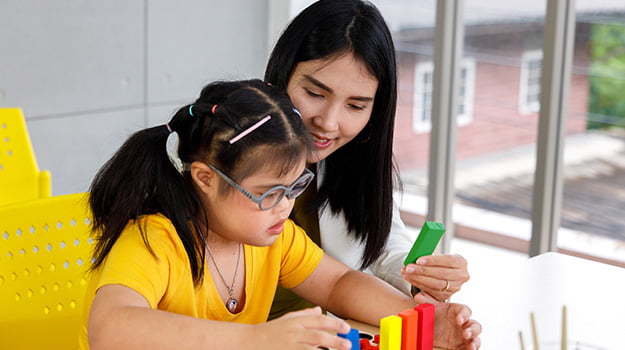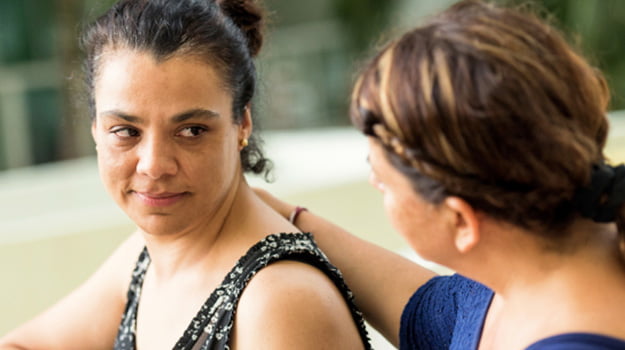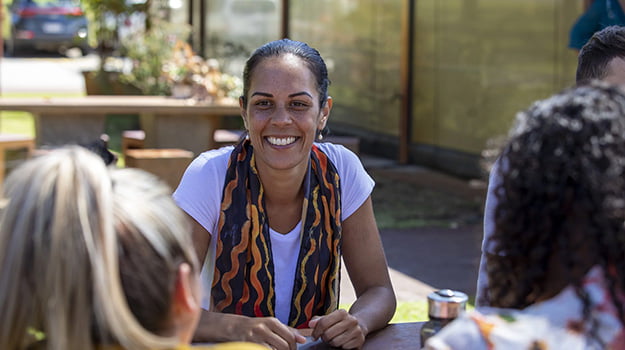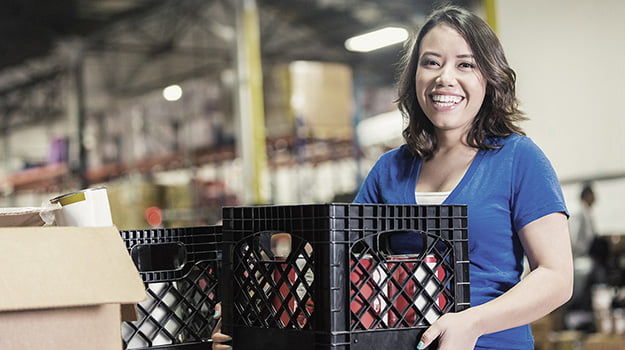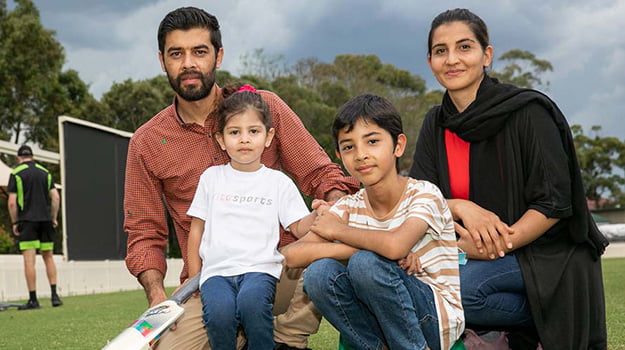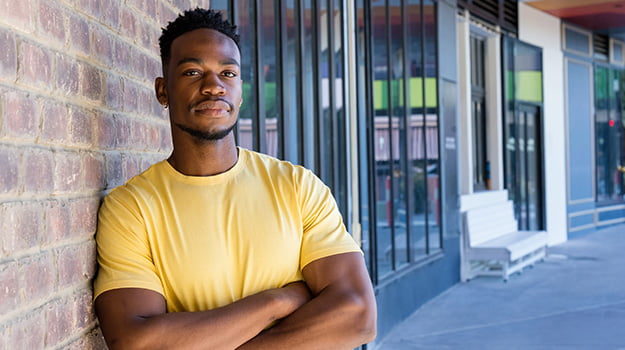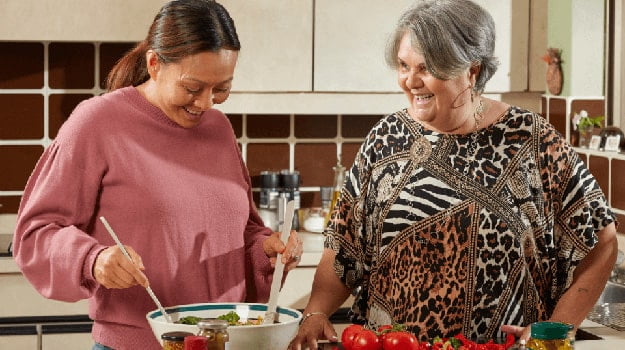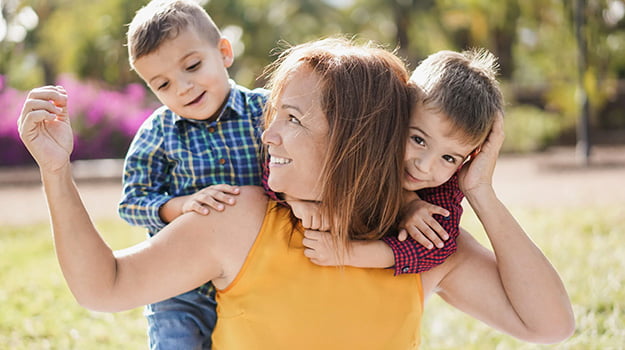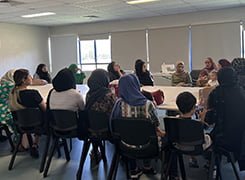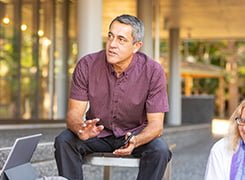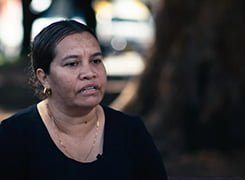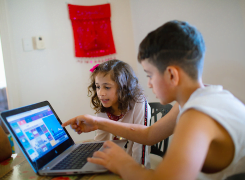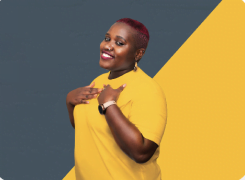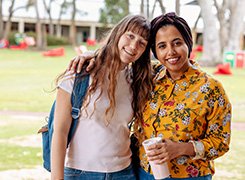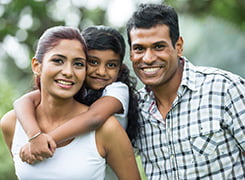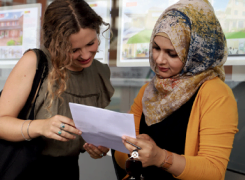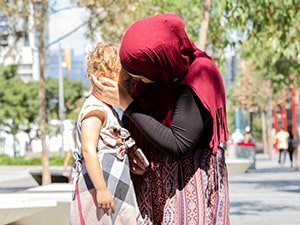Settlement Services International (SSI) is pleased to announce that it has been awarded the tender to deliver Status Resolution Support Services in NSW and ACT. The Department of Immigration and Border Protection (DIBP) has worked with stakeholders over the past 18 months to bring four existing support programs for asylum seekers together into a single program to deliver support services to clients while their immigration status is being resolved. The resulting program is known as Status Resolution Support Services (SRSS)
SSI’s third Speakers’ Series event for 2014 explored the theme: Perception is reality: How do we form our perceptions of refugees and asylum seekers? SSI CEO Violet Roumeliotis explained the significance of the theme. “In recent years we have seen a hardening of views, particularly towards asylum seekers, and the existence of these negative views has resulted in refugees and asylum seekers experienceing discrimination, isolation and not feeling safe in their communities,” Ms Roumeliotis said. “So SSI is committed to understanding public opinion and undertaking initiatives to influence and to try to change negative perceptions. To address these negative perceptions we need to understand how they are formed: to what extent are these negative views shaped by political discourse, media or by our own values as Australians?” The panel: Chris Rau, Superintendent Mark Wright, Professor Andrew Markus and Oliver Laughland.
Young people seeking asylum in Australia are in need of many essential items but the gift of free sports shoes and boots will provide something vital for all youth – fun. On August 30, 50 young people living in Sydney on bridging visas will get that gift when the Asylum Sneakers campaign promoted by Welcome to Australia and soccer commentator Les Murray hits town. Leila Druery from the non-profit organisation Welcome to Australia said the campaign idea grew from seeing the affect sport could have. “Asylum Sneakers came about after seeing the incredibly positive impact of sport on young asylum seeker children in detention centres and in the community,” she said. “Sadly, many children’s participation in sport is limited by not being able to afford shoes and sports equipment.” Settlement Services International (SSI) is a leading not-for-profit organisation that provides a range of services in the areas of humanitarian settlement, asylum seeker assistance, accommodation, foster care and disability support in NSW. The young recipients are all from SSI’s Community Support program.
A short film, which premiere’s today, explores the real life experience of homelessness faced by refugee youth living without their families in Sydney. ‘Broken Time’ is the story of Ali, an Unaccompanied Humanitarian Minor (UHM), who falls back on his survival instinct when he finds himself homeless on the streets of Sydney. Developed by Settlement Services International (SSI), which provides services to humanitarian entrants, with funding from The Australia Council for the Arts, the film will be launches today in Bankstown, to coincide with International Youth Day. Dilber Hussain played the role of Ali, and was all too familiar with the experience of his character in the film. Dilber is from Pakistan and arrived in Australia in 2012 as a UHM at the tender age of 17. When his circumstances rapidly deteriorated and he was faced with homelessness, Dilber said he was frightened. “Staying in a different place every night, and with strangers, it was hard,” said Dilber. “I didn’t know how to get help, and I feel very lonely here without my family.”
A short film, which premiere’s today, explores the real life experience of homelessness faced by refugee youth living without their families in Sydney. ‘Broken Time’ is the story of Ali, an Unaccompanied Humanitarian Minor (UHM), who falls back on his survival instinct when he finds himself homeless on the streets of Sydney. Developed by Settlement Services International (SSI), which provides services to humanitarian entrants, with funding from The Australia Council for the Arts, the film will be launches today in Bankstown, to coincide with International Youth Day. Dilber Hussain played the role of Ali, and was all too familiar with the experience of his character in the film. Dilber is from Pakistan and arrived in Australia in 2012 as a UHM at the tender age of 17. When his circumstances rapidly deteriorated and he was faced with homelessness, Dilber said he was frightened.
Nothing brings people together like food. So, after 30 days of daylight fasting, the Eid al-Fitr holiday to celebrate the end of Ramadan is the ultimate unifying feast. SSI’s Community Kitchen Eid event brought together asylum seeker clients to enjoy delicious food while reflecting on the experience of practicing Islam in Australia. Tuxedo-clad toddlers with tambourines ran around the Auburn Centre for Community among about 200 SSI Community Support Program clients, who are asylum seekers living in the community on temporary visas while their refugee status is being assessed. On the lawn, clients set up cricket games, using double-stacked milk crates as wickets; others kicked soccer balls with the kids, and people inside played boardgames.
Mohamadreza Ashori, 30, dreamt of competing at the Olympic Games, and still holds on to those hopes despite setbacks throughout his life. In May he won the 74 kilogram division at the Australia Cup of Wrestling. He would have qualified for the Commonwealth Games earlier in the year after success in other events, but he is not an Australian citizen. Mohamadreza is seeking refugee protection in Australia and has lived in the community for about 12 months while his application is assessed. That means he is not eligible to compete in the Games. He has been supported by Settlement Services International’s (SSI) Community Support Program during that time.
Mahdia, 18, could not attend school in Iran because of social and financial barriers. But since she arrived in Australia with her mother and brothers, she has thrown herself into school work with vigour. “I really, really love going to school,” Mahdia said, “because I had so many barriers in the country where I came from. I love my school, I love my teachers and subjects and I love to study. I like to go to the library to study whenever I can and if I don’t, I feel like I have missed out on something.” Mahdia was born in Iran, where her family had fled to from war-torn Afghanistan. Attending school in Iran was all but impossible, she said, because of her gender and ethnicity. “But I studied by myself and went to an institute to study English,” Mahdia said. “Then we came here to Australia. We were so broken. We had a lot of issues but we did it.”
Each person asked about Ramadan is sure to describe its meaning in their own considered, subjective terms. Jawad Hussain described what Ramadan meant to him, as about 120 SSI Community Support Program (CSP) clients broke their daily fast at a Community Kitchen Iftar meal. “Ramadan means to fast, but not only from food; (it’s to fast) with eyes, with mind; we have to be good person,” he said. “It means to be really nice, gentle man. You make a special effort. If you practise Ramadan, you believe it will bring some change in your personality.” Jawad came to Australia from Pakistan and, like most people at the Iftar, is awaiting assessment for refugee status. He is a regular at Community Kitchens who volunteers to prepare food and set up and tidy the community centre.
Australia has a long and proud history of resettling some of the most vulnerable refugee women and their families, however, major gaps in support services for these women have been identified and need to be addressed. Speaking today in Sydney at the Refugee Women at Risk forum hosted by Settlement Service International (SSI), SSI Manager Humanitarian Services David Keegan said that based on consultations with refugee women, it’s clear the current level of support should be reviewed. “Research conducted by the UNSW Centre for Refugee Research suggests refugee women in Australia under the Woman Risk visa category experience higher levels of post-traumatic stress and face greater challenges on resettlement,” he said. As the largest provider of services to refugee women in NSW, SSI has observed that a significant number of refugee women who enter via other visa classes have also suffered extreme physical and sexual violence and trauma prior to their arrival and require higher level specialist support services during settlement in Australia. “SSI currently supports about 1000 vulnerable women, and consultations with 50 women have highlighted a greater need for support services, particularly in employment, affordable housing, health and education,” Mr Keegan continued.
Yasmi Houmi, 101 years old, from Iraq, has survived the Assyrian Genocide, World Wars I and II, the Iran-Iraq war, US and Allied Forces wars in Iraq, and the Syrian civil war, to arrive safely in Australia. Having endured many conflicts across several countries, Yasmi was accepted as part of Australia’s humanitarian settlement program for refugees and brought to Sydney in January. She now lives with long-time friends in western Sydney and is supported by Settlement Services International’s (SSI) Humanitarian Settlement program. SSI CEO Violet Roumeliotis said Yasmi was a living treasure and her resettlement as a refugee in Australia after a lifetime of struggle is something all Australians would be proud of. “Yasmi has survived too many conflicts for one person,” Ms Roumeliotis said, “but she has still managed to live a fruitful life and remain positive.” Yasmi is just one of the 2.5 million people who have fled Syria to escape the violent civil war, and she is one of 13,750 refugees who will resettle in Australia this year under the Humanitarian settlement program. “The United Nations High Commissioner for Refugees has described the Syrian conflict as the largest humanitarian operation in history, so, as a humanitarian organisation and as Australians, we are proud to support Yasmi and other refugees seeking a safe haven.
Preparations are under way for the launch of Refugee Week which will this year be held in Western Sydney for the first time. Refugee Week, Australia’s peak annual activity to inform the public about refugees and celebrate the positive contributions made by refugees, will be launched at the Granville Town Hall at 10.30am, Saturday 14 June. The launch is being coordinated by the Refugee Council of Australia (RCOA), the NSW Service for the Treatment and Rehabilitation of Torture and Trauma Survivors (STARTTS) and Settlement Services International (SSI). The keynote speech will be delivered by Merrylands local Ali Ali, a former refugee who fled the Taliban in Afghanistan and arrived in Australia in 2001 as a 17-year-old asylum seeker with no English. Ali’s speech will expand on the Refugee Week theme “Restoring Hope”, recounting how his journey for safety began with danger as well as hope for a better future.
Access to timely and collaborative support services during their first years in Australia is critical to migrant and refugee families, ensuring a smoother transition to a new life here. This was highlighted at today’s Cultural Shift symposium on supporting migrant and refugee families through settlement. “It’s during the first few years of settlement that families […]
The community has joined members of the Budokan Judo Club in Castle Hill to rally in support of the Moghadamshaidie family since they first told their story of fleeing Iran for the relative safety of Australia. Teenage boys Shaheen and Hussain Moghadamshaidie should soon represent NSW at the National Titles but that opportunity to fulfil their potential would not be available if not for the near $1000 raised by supporters. Settlement Services International (SSI) CEO Violet Roumeliotis said the family was in Australia awaiting assessment for refugee status. That means parents Ali and Maliheh are unable to work, but have access to support through SSI’s asylum seeker assistance program. “The family’s little funds are exhausted on rent, food and bills so the cost of travel and competition fees for judo is unmanageable,” Ms Roumeliotis said, “but after the community was made aware of the family’s circumstances, supporters raised money on their behalf. This was a generous show of support that the family is very thankful for, as it will help the boys reach their goals and potential.” One of those supporters was Romy, who did not provide a surname. Romy is a humanitarian aid worker with asylum seekers and refugees. “When I saw the story about Shaheen and Hussain I forwarded it on to friends and colleagues and they were all really excited to be able to help out,” she said. “I hope the money will get the boys to the national titles or as far as they can go towards achieving their goals.”
Refugees and asylum seekers often have compelling stories to tell but for many reasons remain silent. At a special Refugee Week Speakers’ Series event hosted by Settlement Services International (SSI), a panel of writers with refugee and asylum seeker backgrounds and experience will discuss the role storytelling plays in giving voice to this marginalised sector of society. SSI is a leading not-for-profit organisation that provides a range of services in humanitarian settlement, accommodation, asylum seeker assistance, foster care and disability support in NSW. SSI CEO Violet Roumeliotis said the reasons why refugees and asylum seekers chose not to tell their stories were a challenge. “Sometimes their stories are misappropriated or simply ignored,” she said, “and they often have reasons to fear that speaking out will further endanger them or their loved ones. “With most media now published online, comments by refugees and asylum seekers are easily found by their persecutors in their countries of origin. This can have dire consequences for them if they are returned, or for their family members who remain there. “But it is important that we explore ways to make refugees and asylum seekers feel safe, understood and respected in telling their stories. Sharing life stories should foster empathy and help society better understand the circumstances people have endured.” The SSI Refugee Week Speakers’ Series event on Tuesday, June 17, will feature talks from three writers.
Hamid Shirvani, 43, from Iran, has taken out one of the top categories at the NSW Taekwondo State Championships and now hopes to pass on his skills as a coach. Mr Shirvani lives with his wife and baby daughter in South Wentworthville. The family fled Iran about a year ago and is awaiting the outcome of their assessments for refugee status. This means Mr Shirvani is unable to work and has limited access to the training resources that other taekwondo competitors could afford. But this didn’t stop him winning a gold medal in the open men’s 80 to 87 kilogram black belt category at the State Championships on May 11. Mr Shirvani is no stranger to success in taekwondo. The sport is much more popular in Iran, where there is a professional league of taekwondo. Mr Shirvani said he was a top-five contender in the country’s professional competition for 10 years. He won several national tournaments, he said, and qualified for international events but was never allowed to leave Iran. Now in Australia, he hopes to pass on the skills he has learned over 30 years of training and coaching in the sport. “Taekwondo is something that I grew-up doing,” he said through an interpreter, “it is part of my life and I will always be practicing it. This is what I have dedicated my life to. I have years of experience and I think I can teach and improve taekwondo in Australia.”
Settling in Australia presents recently arrived migrant and refugee families with many new opportunities but the process of settlement and the associated adjustments to a new country can also be challenging. “The first few years after arrival are when many migrant and refugee families face some of their greatest challenges,” Settlement Services International (SSI) CEO, Violet Roumeliotis said. “As our population grows, it has become imperative that we work together to make the change as smooth as possible for migrants and refugees.” Ms Roumeliotis said SSI had, for the first time in NSW, brought together leaders and experts from diverse organisations to provide an insightful and engaging interactive program at a one day symposium to be held on June 5 in Parramatta, titled ‘Cultural Shift: symposium on supporting migrant and refugee families through settlement.’ Please read on for snapshots of just some of the presentations and workshops at the symposium. SSI can arrange pre-event interviews with presenters and can arrange for interviews if a journalist would like to attend on the day.
Settling in Australia presents recently arrived migrant and refugee families with many new opportunities but the process of settlement and the associated adjustments to a new country can also be challenging. “The first few years after arrival are when many migrant and refugee families face some of their greatest challenges,” Settlement Services International (SSI) CEO, Violet Roumeliotis said. “As our population grows, it has become imperative that we work together to make the change as smooth as possible for migrants and refugees.” Ms Roumeliotis said SSI had, for the first time in NSW, brought together leaders and experts from diverse organisations to provide an insightful and engaging interactive program at a one day symposium to be held on June 5 in Parramatta, titled ‘Cultural Shift: symposium on supporting migrant and refugee families through settlement.’ Please read on for snapshots of just some of the presentations and workshops at the symposium. SSI can arrange pre-event interviews with presenters and can arrange for interviews if a journalist would like to attend on the day.
Art Is Our Voice is an exhibition showcasing the creative work of refugees and people seeking asylum in Australia. The exhibition has been organised by Settlement Services International (SSI) in conjunction with University of Sydney Amnesty International and Amnesty International’s ARTillery project, with the support of Verge Gallery, run by The University of Sydney Union. SSI CEO Violet Roumeliotis said the exhibition would give artists from communities often marginalised in our society the opportunity to present their stories to the world. “The exhibition will give voice to people who are too often spoken for and about by others,” Ms Roumeliotis said. “By presenting their work to the community, these 15 visual artists from Iran, Iraq, Egypt and Sri Lanka can show their skills and express their creativity. “Most of these artists have worked professionally in their countries of origin in a range of media that include, painting, sculpting, photography, and as jewelers and engravers. “We hope this exhibition will not only showcase their talents but help the artists make new connections in the community that will help them pursue their art here in Australia.” Of special interest at the exhibition will be the work of ‘coffee artist’ Masoud Akhava Ghassabzadeh. Coffee art is practiced by artists who have spent time in detention centres. With no access to paints or other materials, asylum seekers in detention began using instant coffee mixed with water to paint with.
Access to timely and innovative services during their first years in Australia is critical to migrant and refugee families, ensuring a smoother transition to a new life here, a concept that will be explored at the upcoming Cultural Shift symposium. “It’s during the first few years of settlement that families face some of their greatest challenges, so it’s vital that NGOs and Governments alike provide innovative responses to these challenges,” said Settlement Services International (SSI) CEO, Violet Roumeliotis. “Services that build capacity in the process of settlement and the associated adjustments to a new country’s social, cultural, legal and other systems allow migrants and refugees to achieve a ‘cultural shift’ in their settlement journey.” Ms Roumeliotis said SSI had brought together leaders and experts from the NGO and Government sectors to provide an insightful and engaging interactive program. The June 5 ‘Cultural Shift: symposium on supporting migrant and refugee families through settlement’ will be held in Parramatta. Registrations, which opened last week, will close on May 30.
 Uniting communities to thrive togetherExplore Communities
Uniting communities to thrive togetherExplore Communities Helping you reach your goalsExplore Disability
Helping you reach your goalsExplore Disability Living and breathing diversityExplore Diversity & Inclusion
Living and breathing diversityExplore Diversity & Inclusion Building healthier homesExplore Domestic & Family Violence
Building healthier homesExplore Domestic & Family Violence Pathways for people to reach their full potentialExplore Education & Training
Pathways for people to reach their full potentialExplore Education & Training Growing economic participation in AustraliaExplore Employment
Growing economic participation in AustraliaExplore Employment Nurturing potential and building foundations for brighter futuresExplore Family, Children & Youth
Nurturing potential and building foundations for brighter futuresExplore Family, Children & Youth Supporting holistic well-being for individuals and communitiesExplore Health & Wellbeing
Supporting holistic well-being for individuals and communitiesExplore Health & Wellbeing Home Care Workforce Support ProgramExplore Home Care
Home Care Workforce Support ProgramExplore Home Care Supporting newcomers across their settlement journeyExplore Settlement
Supporting newcomers across their settlement journeyExplore Settlement Ethical support and solutions on immigration legal matters.Explore SSI Legal Pty Ltd
Ethical support and solutions on immigration legal matters.Explore SSI Legal Pty Ltd Uniting communities to thrive togetherOur services engage and empower community members, foster collaboration, and promote positive change.Explore CommunitiesServices
Uniting communities to thrive togetherOur services engage and empower community members, foster collaboration, and promote positive change.Explore CommunitiesServices Helping you reach your goalsWe’ll connect you with the support you need to thrive.Explore DisabilityDiversity & Inclusion
Helping you reach your goalsWe’ll connect you with the support you need to thrive.Explore DisabilityDiversity & Inclusion Living and breathing diversityOur language services and diversity training workshops foster meaningful cultural awareness for organisations and individuals.Explore Diversity & InclusionDomestic & Family Violence
Living and breathing diversityOur language services and diversity training workshops foster meaningful cultural awareness for organisations and individuals.Explore Diversity & InclusionDomestic & Family Violence Building healthier homesOur educational and support programs empower adults and young people to identify and take action against abusive behaviour.Explore Domestic & Family ViolenceEducation & Training
Building healthier homesOur educational and support programs empower adults and young people to identify and take action against abusive behaviour.Explore Domestic & Family ViolenceEducation & Training Pathways for people to reach their full potentialOur programs promote lifelong learning, foster economic opportunities, and enhance overall well-being and potential.Explore Education & TrainingEmployment
Pathways for people to reach their full potentialOur programs promote lifelong learning, foster economic opportunities, and enhance overall well-being and potential.Explore Education & TrainingEmployment Growing economic participation in AustraliaEnhancing the employability of individuals and supporting employers to create a diverse workforce and inclusive culture.Explore EmploymentFamily, Children & Youth
Growing economic participation in AustraliaEnhancing the employability of individuals and supporting employers to create a diverse workforce and inclusive culture.Explore EmploymentFamily, Children & Youth Nurturing potential and building foundations for brighter futuresWe deliver a range of programs that help families, children, and youth to thrive and reach their full potential.Explore Family, Children & YouthServices
Nurturing potential and building foundations for brighter futuresWe deliver a range of programs that help families, children, and youth to thrive and reach their full potential.Explore Family, Children & YouthServices Supporting holistic well-being for individuals and communitiesOur programs educate, empower, and support individuals to lead balanced and fulfilling lives.Explore Health & WellbeingHome Care
Supporting holistic well-being for individuals and communitiesOur programs educate, empower, and support individuals to lead balanced and fulfilling lives.Explore Health & WellbeingHome Care Home Care Workforce Support ProgramRecruiting and supporting an aged care workforce for the future.Explore Home CareServicesSettlement
Home Care Workforce Support ProgramRecruiting and supporting an aged care workforce for the future.Explore Home CareServicesSettlement Supporting newcomers across their settlement journeyOur settlement services connect newcomers with resources, knowledge, and skills for personal growth and community integration.Explore SettlementServices
Supporting newcomers across their settlement journeyOur settlement services connect newcomers with resources, knowledge, and skills for personal growth and community integration.Explore SettlementServices Ethical support and solutions on immigration legal matters.A team led by experienced professionals and dedicated support.Explore SSI Legal Pty LtdServicesClose
Ethical support and solutions on immigration legal matters.A team led by experienced professionals and dedicated support.Explore SSI Legal Pty LtdServicesClose
